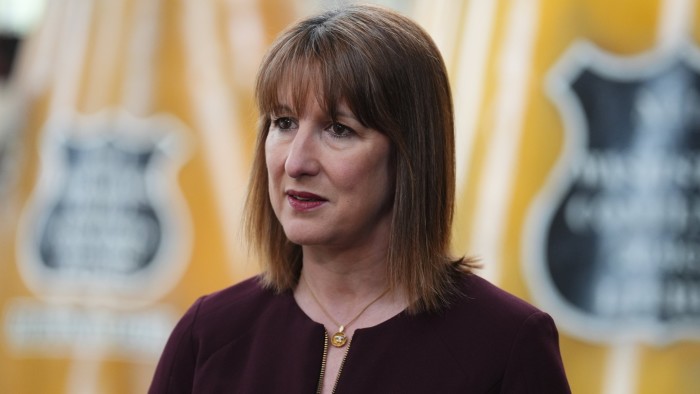Unlock the Editor’s Digest for free
Roula Khalaf, Editor of the FT, selects her favourite stories in this weekly newsletter.
The UK government is on course to breach its fiscal rules, which have become a damaging source of uncertainty and a drag on economic growth, a leading think-tank said on Thursday.
The National Institute of Economic and Social Research said cost pressures, weak business confidence and uncertainty over tariffs had hit the outlook for growth, with UK GDP set to expand by just 1.2 per cent in 2025, a downgrade from its February forecast of 1.5 per cent.
Weaker growth will also mean lower tax receipts, Niesr said, estimating that without policy changes, the current budget would be in deficit by 1.6 per cent of GDP by 2029-30.
This would leave chancellor Rachel Reeves some £57bn short of her commitment to balance the current budget, and therefore in breach of one of her key fiscal rules, it added.
The government was also set to break its rule that public sector net financial liabilities be falling as a share of GDP by the end of the parliament by about £25bn, Niesr said.
This meant Reeves would face “some very difficult choices” at the autumn Budget if she wanted to rebuild headroom against the rules, as she had done in the Spring Statement, it added.
Stephen Millard, Niesr’s interim director, said the “self-imposed and arbitrary” fiscal rules had “led to a situation where twice a year the chancellor has to either find further departmental savings or announce politically unpalatable tax rises”.
“The uncertainty created by this leads to low investment and lower growth, the precise reverse of what the government wants to achieve,” he added, calling for a rethink of the fiscal framework.
Niesr’s judgment that the UK’s outlook is “uncertain and fragile” is especially damning — because it argues that the challenges facing the economy are largely of domestic origin.
US President Donald Trump’s tariffs would deal a big blow to global growth but would make relatively little difference to UK output or inflation, the think-tank said.
Instead, it blamed the government for sapping business confidence and opting to raise taxes in a way that would add to labour costs, fuelling inflation and penalising employment.
Strong wage growth and sharp increases in regulated prices meant inflation was set to rise sharply in the near term and average 3.3 per cent over the course of 2025, Niesr said.
The think-tank argued that reversing the previous Conservative government’s cuts to employees’ national insurance contributions would have been less damaging to economic growth than the course Reeves had taken by raising employers’ national insurance contributions.
“This tax increase leaves the Budget — and the UK economy as a whole — in a risky and vulnerable position,” it said.
Mel Stride, shadow chancellor, accused Reeves of “playing fast and loose with the public finances” and said this inevitably meant “rising speculation about further painful tax rises come the autumn . . . when businesses are in desperate need of certainty.”
A Treasury spokesperson said the government had an “iron clad” commitment to meeting its fiscal rules and had “delivered a once in a parliament Budget to fix the public finances and rebuild the NHS”, before “going faster and further for growth”.




